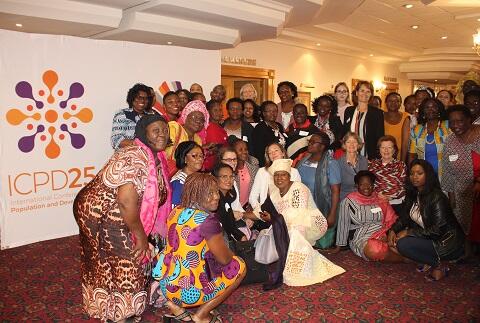WINDHOEK, Namibia – The UNFPA Global Midwifery Strategy for 2018–2030 was launched today at the Safari Hotel ahead of the International Confederation of Midwifery (ICM) Regional Conference.
The new strategy for years 2018–2030 was created to advance the fulfilment of the health pillar of the United Nations’ Sustainable Development Goals (SDG3), which aims to reduce the global maternal mortality ratio (MMR) to less than 70 deaths per 100,000 live births by 2030.

Mikaela Hildebrand, the Senior Policy Advisor on sexual and reproductive health rights (SRHR) at the Embassy of Sweden in Lusaka, commented on the current situation: “We have made tremendous progress over the years in reducing the level of maternal and child mortality, but there are still many deaths that are completely preventable – in births, during the first month of life, and after giving birth. The new strategy is putting up a checklist for what we can do better in our countries.”
For the strategy, UNFPA teamed up with ICM, an organisation that supports and represents professional associations of midwives on a global arena. The midwives are an invaluable partner for UNFPA, as they constitute the health professionals whose contribution is essential for delivering comprehensive sexual and reproductive as well as maternal health services.
We need you, the world needs you because we know that midwives are categorically essential in achieving justice in childbearing
“We need you, the world needs you because we know that midwives are categorically essential in achieving justice in childbearing,” said Dennia Gayle, UNFPA Representative for Namibia.
The midwives are identified as agents of change, as they are not only a cost-effective way to saving the lives of women and children, but also increasing their health and well-being. Furthermore, they often form the first point of contact between the expecting mothers and maternal health services. Thus, they are able to narrow the gaps that still exist in terms of maternal and newborn health.
The main goal of the new strategy is to enable all women to have access to quality midwifery services and care. The goal is achieved through the strengthening of the competence of midwives, supporting countries to have fully functioning midwifery associations, increasing the level of midwives in hospitals and clinics, creating supportive legal and policy frameworks that enable midwives to provide respectful care, and enhancing the practice’s recognition and implementation on global programmes and frameworks.
Ms. Anneka Knutsson, Chief of the Sexual and Reproductive Health Branch at the UNFPA headquarters, lauded the ambitious goals of the Global Midwifery Strategy 2018–2030 in a speech she gave during the launch. “This strategy helps us carry through to the next step, where every woman and girl can get the services that they deserve, and that are delivered to them with dignity. We need to assure that the full life course of a girl needs to be supported from the beginning until menopause,” she said.
The new strategy is a welcome and needed addition to the UNFPA’s already impressive mandate. It offers tangible guidelines to ascertain that the rights of children and women are advanced and advocated for in a manner that puts those in the most vulnerable position at the heart of the agenda.
Nina Ahola


